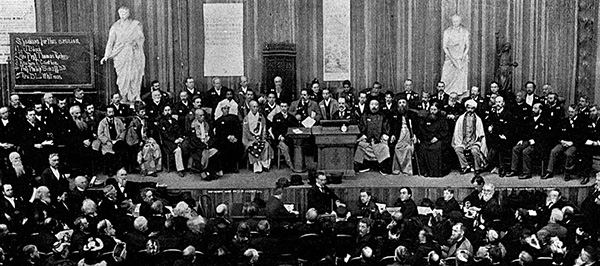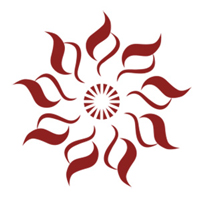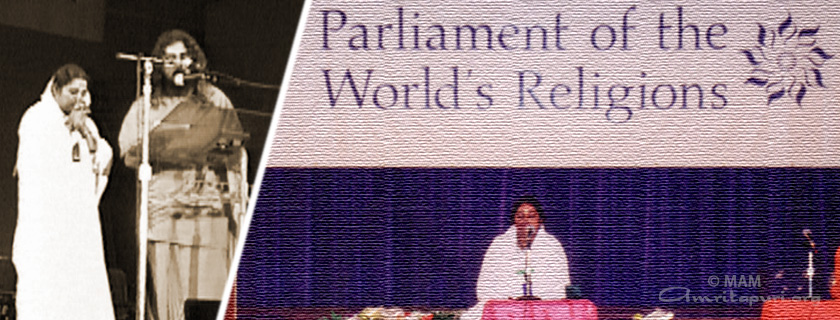Parliaments of the World’s Religions in 1893 and 1993
The first Parliament of the World’s Religions was held in Chicago in 1893. It marked the first concerted effort to bring all the different religions to a common platform where leaders and representatives of all faiths were able to communicate and share their views. At that first conference they explored the possibilities for religious tolerance and harmony, and ways in which they could co-operate in order to solve the burning issues that beset humanity.

The 1893 Parliament of the World’s Religions was attended by 400 men and women, representing 41 religious traditions. It was there that Catholicism and Judaism were recognized as major American religions, and that Hinduism and Buddhism were first introduced to the West. And, it was on this occasion that Swami Vivekananda won wide recognition for India’s ancient culture, philosophy and faith through his powerful words.

The centenary of the first Parliament of the World’s Religions was held, also in Chicago, from August 28 to September 4, 1993. Over 6500 delegates, representing approximately 125 of the world’s religions participated in the grand Parliament; among them were approximately 600 world spiritual leaders.
Whereas the first Parliament resulted in the acceptance of Jews and Catholics into the mainstream and a stirring introduction to the religions of the East, the second Parliament marked the growing recognition and influence of these other traditions and faiths. The Parliament provided a lucid example of an emerging religious pluralism.
The Assembly of Presidents
A momentous achievement of this second Parliament was the formation of a core group of the world’s most influential religious leaders, an assembly of 25 presidents representing all major faiths. During the days of the Parliament, this group met privately to discuss the problems facing the world, to propose solutions, and to set down a Global Ethic.
It was envisioned that this core group should work as a sort of spiritual United Nations: whenever a conflict arises anywhere in the world owing to religious intolerance, the group will use their collective influence and spiritual weight in order to find a peaceful solution. They will try to demonstrate to the world that religion can and should be a source of harmony rather than strife.
Amma was chosen as one of three presidents to represent the Hindu faith, the other two presidents being Swami Chidananda Saraswati (President of the Divine Life Society) and Sivaya Subramuniya Swami (Spiritual leader of the Saiva Siddhanta Church and publisher of Hinduism Today).
This distinguished assembly of presidents, who represent our many different paths, would strive not only to propagate interfaith dialogue, but also to lead humanity towards a new era of harmony and peace.


